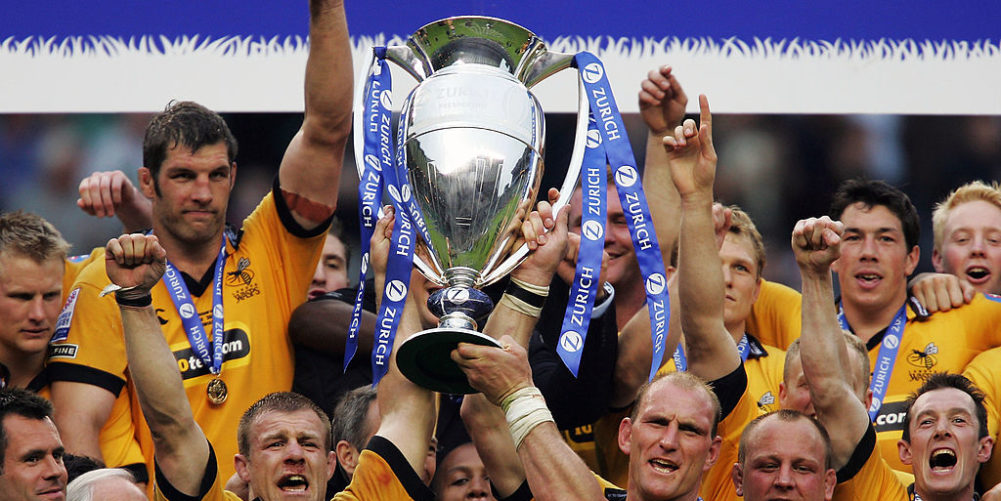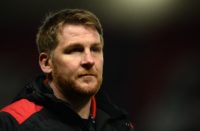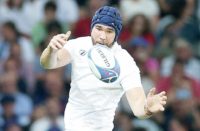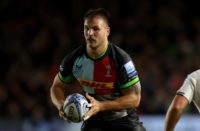I'M sure he won't like me saying it but the general consensus among most Wasps players was that Shaun Edwards is a maverick but also a bloody nutter.
When he first arrived at the club in 2001, fresh from a superb career in Rugby League no-one knew how to take him. He didn't give a damn who he was talking to, and was exceedingly fiery. On one occasion the boys got together to tell ‘Melly' (DoR Nigel Melville) that Shaun needed reining in but once ‘Gats' (Warren Gatland) came in and knocked the rough edges off, Shaun found himself and we never looked back.
We were well ahead of the curve with his rush-defence innovation and centres Fraser Waters and Stuart Abbott were pivotal to its success. Under Gats, Shaun, Craig White and Paul Stridgeon, we were the fittest team around.
We used to have two pre-seasons, one at the start where we'd focus on building body mass through weights – the gym at Twyford became world-class, and was always pumping to the sound of loud music – and another around January which focused on anaerobic fitness. By the time we got to the business end of the season, no-one was better prepared than us.
The trips to Poland were also legendary for building team unity. The place had all the facilities you could want, including the famous cryotherapy ice chambers, but not much else and no alcohol, so we were left to make up games, as rugby boys do, to amuse ourselves in the evening. Great times.
We won the Tetley's Bitter and Parker Pen Cup, the Premiership three times, and the Heineken Cup. We got so used to success we'd sit down at the start of each season and have a big debate about whether we'd smash Europe or the Premiership that year. It showed how far the club had come from the days training in the mud bath – we called it dogs*** park – at Sudbury, fighting for league survival.
I wasn't the most creative player in the team, but I was the fittest and I'd prided myself on being first to breakdowns and running support lines to being ultra-aggressive in defence. My mission was to be make opposition 10s' life a misery.
The most memorable game was the Heineken Cup semi-final against Munster. All week we were talking about Ronan O'Gara and putting pressure on him. Myself and the rest of the back row were given the task of taking the ball down his channel and getting in his face time and again. When O'Gara left the field injured after 30 minutes my job was done. I later found out from the late, great Munsterman, Anthony ‘Axel' Foley, who I met up with on a legend Lions tour to Bermuda, that Ronan hated me after all these years and (wrongly) accused me of bad-mouthing his family!
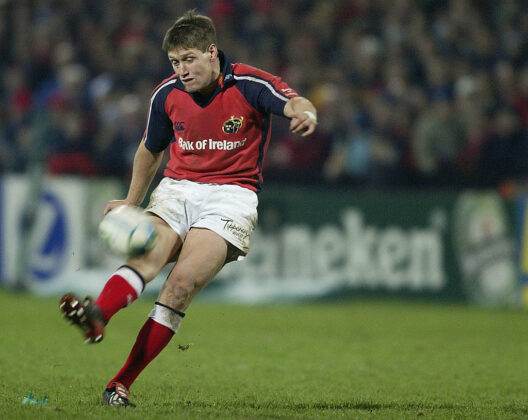
The 2003/4 double season was incredible. Howlers (Rob Howley) did the hand of god sort of thing in the final against Toulouse and then we beat Bath the week after in the Premiership final. One of favourite photos is of me pushing Martyn Wood's head (ex-Wasps and then Bath No.9) into the dirt. I gave him and Molly (Chris Malone), the fly-half, a torrid time. When I played with Molly at Quins, we spent many nights talking about that game – me more fondly than him! Back in the day, you could be fractionally late in the hit and get away with it.
The Bath match was my last for Wasps after 16 years at the club and I was over the moon that we'd done the double. I was interviewed by Sky Sports and remember yelling into the camera: “Are you watching Clive Woodward?”
Never getting capped by England did irritate me. The relationship coaches have with certain players is massively important in terms of selection and the back row of Neil Back, Richard Hill and Lawrence Dallaglio worked great for him. Even so, on many occasions I felt as if I deserved a shot, at least in one of the so-called ‘lesser' games but they went on to win the World Cup so I can't moan too much!
With my wife Jo pregnant with our second child, I signed for Castres. Being a key member of a double-winning team meant I was very marketable at the time and it was a lucrative deal. In a short space of time, we all came to love it out there. It's so family-orientated in France, and to be a part of a town that loved its rugby, where the fans would come up and celebrate the win with a few pints one week, then berate you the following week because you lost, was a new and enjoyable experience for me.
In my second year at Castres, Nico Spanghero asked me what is was like in London and it turned out he was off to Harle-quins. I made sure my number was passed on to Deano (Dean Richards) and he came over with Andy Friend and John Kingston to have a chat with me at Toulouse airport. I certainly didn't expect to be offered the captaincy of one of the game's most iconic clubs that day.
I made sure Castres were aware of my plans to return to London and the president called me in for a meeting. He came up with an incredible counteroffer, one that was difficult to believe. I needed the best deal for my family, so I told Deano about the Castres offer and he sorted it.
I'd put Deano on the same footing as Gats: he knows his players inside and out, their strengths and weaknesses and how to mould a team. He saw me as someone who could help bridge the gap between the experienced players and the youngsters coming through like George Robson, Danny Care, Ugo Monye and Dave Strettle. By year two though, I'd done my bit. From the January onwards, he was looking at succession planning and my game time was limited. I found that quite hard to be honest and began my transition into the ‘real world'.
Once my time at Quins came to an end, it was time to start a new chapter. Japan was an option but instead I thought I'd start the transition into business, and headed to the City. I couldn't have picked a worse time, as it was 2008 and the arse had fallen of the financial services industry.
At the same time, I joined London Scottish. Kenny Logan helped set that one up. In the first year, I was getting up at 5.30am and driving to Richmond to do weights, I'd leave my car at the club and then commute into London for a full day's work before returning back for evening training. It was full-on and not sustainable, but I didn't want my levels of professionalism to drop or to let Scottish down.
We flew through the leagues but once into National 2, something had to give. The standard of games had gone up and there was more travelling involved, and all the while the business side of things wasn't going well; the transition into the real world was difficult with a total loss of love for the sport I'd grown up playing.
I started a business development role at Robert Walters, one of the top five global recruiters. My job was to link the many businesses which sponsors rugby within the sectors Robert Walters recruit. I
t sounds great but this was 2008 and businesses were on their knees plus I didn't have a clue what I was doing with no lead on how to do it. After six months I'd had enough and I left. Jon Sleightholme, the ex-Northampton player, put me in touch with my now CEO Hamilton Matthews and global head of sales, Angus McIntosh, who gave me my break at Acuris, and I'm enjoying my role immensely.
My boy started playing rugby down at Wimbledon for the U9s, which reinvigorated my love for the game and with an eagerness to coach, I went full cycle and back to my old days at Chinnor RFC, my first club.
Always now looking to give something back to the game, I was asked to get involved with City League Rugby, a league of the city firms which play on a Wednesday evening in East London. This season we've managed to increase the teams from six to 14 and arranged a finals day playing on the hallowed turf of the Stoop, followed by a dinner raising money for the British Legion.
– as told to Jon Newcombe

